World
On This Day In History - March 19
By CM Chaney · March 19, 2024
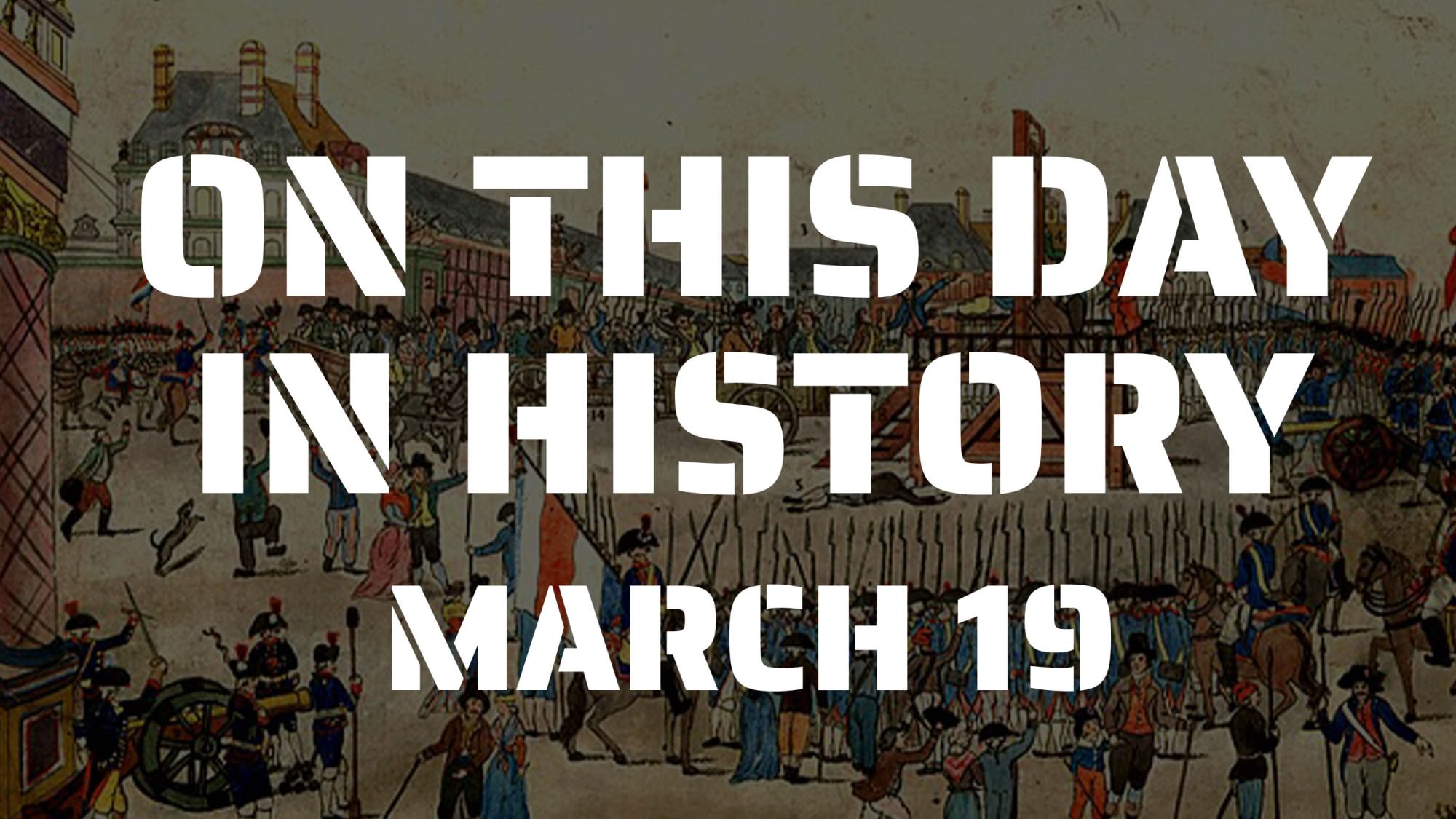
On This Day In History - March 19
"On This Day in History" is a captivating journey through time, revisiting the most significant events that have occurred on this very date throughout the years.From monumental political decisions and groundbreaking scientific discoveries to unforgettable moments in sports and cultural milestones, each article in this series will transport you back to a specific day, offering a glimpse into the past and revealing how these events have shaped our world.
Join us as we uncover the fascinating stories that have left an indelible mark on history. Wikimedia
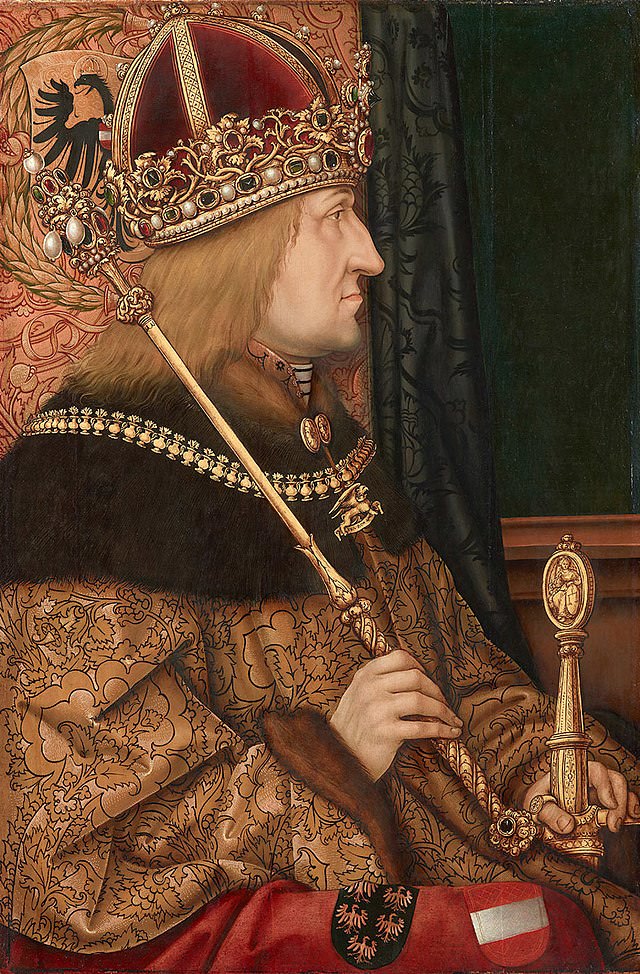
1452: Frederick III Becomes Last Pope-Crowned Holy Roman Emperor
On March 19, 1452, Frederick III made history by becoming the last Holy Roman Emperor to be crowned by a Pope. The coronation ceremony, conducted by Pope Nicholas V in Rome, marked the end of a centuries-old tradition that symbolized the intertwining of spiritual and temporal power in medieval Europe.Frederick III's reign as Holy Roman Emperor lasted until his death in 1493, making him the longest-reigning emperor in the history of the Holy Roman Empire. His coronation by the Pope signified the changing dynamics between the Church and the Empire, as the power of the papacy began to wane in the face of rising nationalism and the Protestant Reformation.
This pivotal moment in European history foreshadowed the gradual decline of the Holy Roman Empire and the emergence of new political and religious forces that would shape the modern world. Wikimedia/Hans Burgkmair the Elder

1560: Huguenot Nobles' Coup Attempt Foiled at Amboise
On March 19, 1560, a group of French Huguenot aristocrats launched a daring plot known as the Conspiracy of Amboise, aiming to overthrow the powerful Roman Catholic House of Guise.The Huguenots, who adhered to the Protestant Reformation, sought to challenge the Guise family's dominance in the French court and their influence over the young King Francis II. The conspirators planned to seize the king and the city of Amboise, but their plot was discovered before it could be carried out.
The failure of the Conspiracy of Amboise led to a brutal crackdown on the Huguenots, with many of the conspirators executed or imprisoned. This event marked a significant escalation in the tensions between Catholics and Protestants in France, setting the stage for the French Wars of Religion that would consume the country for decades to come. Wikimedia/Jacques Tortorel

1687: La Salle Murdered in Texas During Mississippi Expedition
On March 19, 1687, French explorer René-Robert Cavelier, sieur de La Salle, met a tragic end when he was murdered by his own men during an expedition to locate the mouth of the Mississippi River.La Salle had previously led a successful expedition down the Mississippi, claiming the vast territory surrounding the river for France and naming it Louisiana in honor of King Louis XIV. However, on this fateful journey, La Salle and his crew faced numerous challenges, including shipwrecks, disease, and hostile encounters with Native Americans. As tensions mounted among the explorers, a mutiny broke out, resulting in La Salle's assassination in present-day Texas.
The death of La Salle marked a setback for French colonization efforts in North America, but his legacy endured through the establishment of Louisiana and the future city of New Orleans, which would become a vital center of French culture and commerce in the New World. Wikimedia/John Norval Marchand
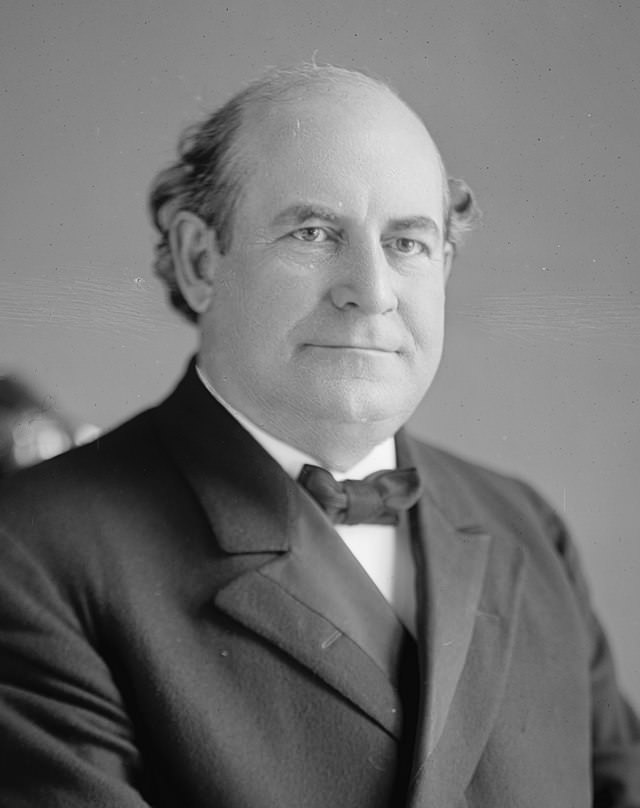
1860: William Jennings Bryan Is Born
On March 19, 1860, William Jennings Bryan, a prominent figure in American politics and a captivating orator, was born in Salem, Illinois.Bryan rose to national prominence as a leader of the Democratic and Populist parties, advocating for the interests of farmers, laborers, and the common man. He gained fame for his powerful speeches, most notably his "Cross of Gold" address, which criticized the gold standard and called for the free coinage of silver. Bryan's oratorical skills and populist message propelled him to become the Democratic nominee for president in 1896, 1900, and 1908.
Despite his charisma and appeal to the masses, Bryan ultimately fell short in all three presidential bids. Nevertheless, his influence on American politics extended beyond his presidential aspirations, as he played a significant role in shaping the progressive movement and championing causes such as women's suffrage and prohibition. Wikimedia/Harris & Ewing
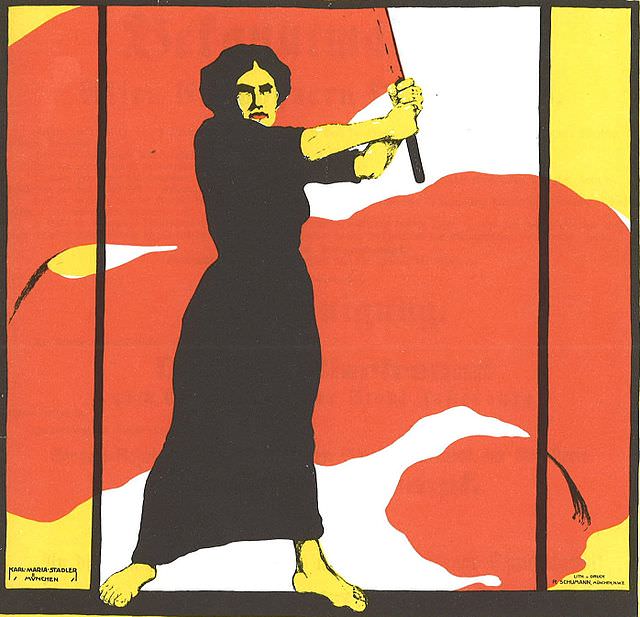
1911: First International Women's Day Observed
On March 19, 1911, the first International Women's Day was celebrated in Austria, Denmark, Germany, and Switzerland.The idea for a day dedicated to advocating for women's rights and suffrage had been proposed by German socialist Clara Zetkin at the International Conference of Working Women the previous year. Women across Europe organized rallies and demonstrations to demand the right to vote, hold public office, and enjoy equal working conditions and pay.
The observance of International Women's Day quickly spread to other countries, becoming a global phenomenon that highlighted the ongoing struggle for gender equality. Over a century later, International Women's Day continues to be celebrated on March 8, serving as a powerful reminder of the progress made and the work still needed to achieve true equality for women worldwide. Wikimedia/Karl Maria Stadler
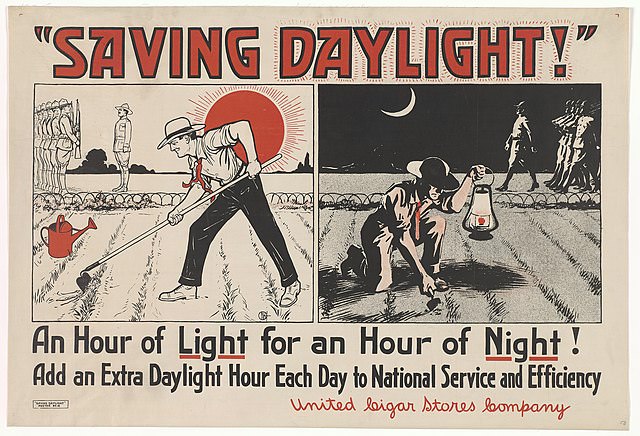
1918: Wilson Signs Standard Time Act, Introduces Daylight Saving
On March 19, 1918, U.S. President Woodrow Wilson signed the Standard Time Act into law, a significant piece of legislation that established Daylight Saving Time (DST) in the United States.The act was initially introduced as a wartime measure to conserve energy during World War I, as the extended daylight hours were believed to reduce the need for artificial lighting. In addition to implementing DST, the Standard Time Act also granted the federal government the authority to regulate the nation's time zones. Prior to this, time zones were primarily determined by local jurisdictions, leading to confusion and inconsistencies across the country.
The introduction of DST and federal oversight of time zones standardized timekeeping practices in the United States, a move that had far-reaching effects on transportation, communication, and commerce. Despite occasional controversies and adjustments over the years, the legacy of the Standard Time Act endures, with DST remaining a common practice in many parts of the country. Wikimedia/United Cigar Stores Company
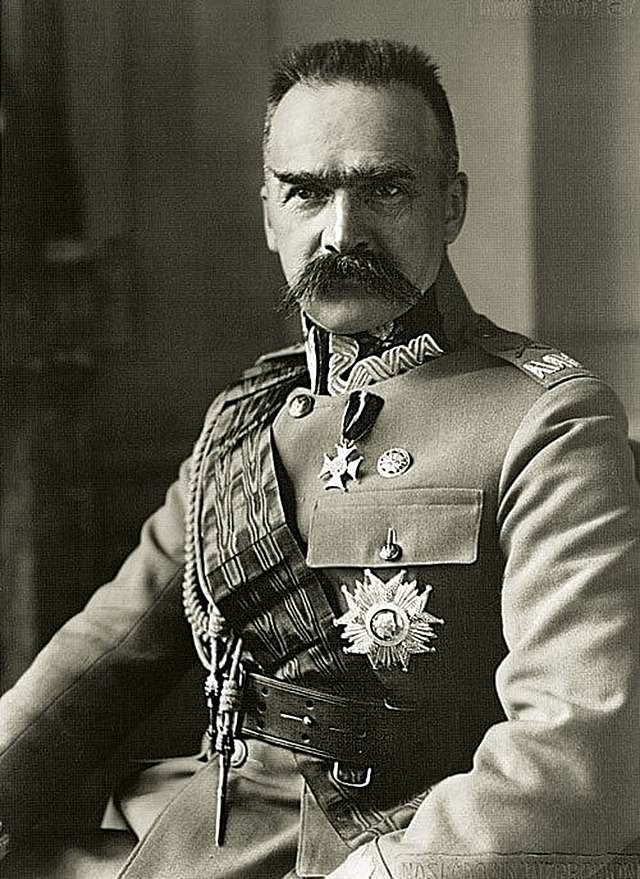
1920: Józef Piłsudski Named Marshal Of Poland
On March 19, 1920, Józef Piłsudski, a pivotal figure in Poland's struggle for independence, was officially named Marshal of Poland. This title, the highest military rank in the country, recognized Piłsudski's leadership and contributions to the newly independent Polish state.Piłsudski had played a crucial role in the fight against foreign rule, commanding Polish forces during World War I and leading the charge for Poland's sovereignty. As Marshal, Piłsudski assumed supreme command over Poland's armed forces, overseeing the country's defense and military strategy. His appointment came at a critical time, as Poland faced ongoing challenges to its borders and sovereignty, including the Polish-Soviet War.
Piłsudski's leadership and tactical prowess were instrumental in securing Poland's independence and shaping the nation's political landscape in the years that followed. His legacy as a military hero and statesman continues to hold a prominent place in Polish history. Wikimedia

1931: Nevada Rolls the Dice, Legalizes Gambling Statewide
On March 19, 1931, Nevada made a historic decision by legalizing gambling throughout the state. This landmark legislation paved the way for the development of Nevada's iconic casino industry, particularly in the city of Las Vegas.The move to legalize gambling was a response to the economic hardships brought on by the Great Depression, as Nevada sought new ways to generate revenue and attract tourists. The legalization of gambling transformed Nevada's economy and culture, as casinos began to sprout up across the state, offering a wide range of games of chance, including slot machines, poker, and roulette. Las Vegas, in particular, capitalized on this opportunity, evolving from a small desert town into a glittering metropolis known for its luxurious resorts, entertainment, and 24/7 gambling scene.
Nevada's decision to embrace gambling not only changed the state's fortunes but also had a profound impact on American popular culture, cementing Las Vegas' status as a symbol of glamour, excess, and the pursuit of fortune. Wikimedia/Matt Kieffer

1954: Jill Abramson, Trailblazing New York Times Editor, Is Born
On March 19, 1954, Jill Abramson, a pioneering American journalist, was born in New York City. Abramson's career in journalism spanned several decades, during which she made significant contributions to the field and broke barriers for women in the industry.She is best known for her tenure as the executive editor of The New York Times from 2011 to 2014, becoming the first woman to hold this prestigious position in the newspaper's history. As executive editor, Abramson oversaw the Times' news coverage and editorial direction, guiding the publication through the challenges of the digital age.
Prior to her role at the Times, Abramson worked as an investigative reporter and bureau chief at The Wall Street Journal, where she covered a wide range of topics, from politics to economics. Her appointment as executive editor at the Times was a watershed moment for women in journalism, setting an example for future generations of female leaders in the media industry. Wikimedia/US Department of Labor

1962: Bob Dylan Releases Self-Titled Debut Album
On March 19, 1962, American singer-songwriter Bob Dylan released his self-titled debut album, "Bob Dylan," on Columbia Records. The album marked the beginning of Dylan's iconic career, which would eventually establish him as one of the most influential figures in the history of popular music.However, upon its initial release, "Bob Dylan" received a mixed reception from critics and listeners alike. The album featured a mix of original compositions and traditional folk songs, showcasing Dylan's raw, nasal vocals and distinctive harmonica playing. While some praised Dylan's unique style and poetic lyrics, others found his singing voice and musical approach to be an acquired taste.
Despite the mixed reviews, "Bob Dylan" laid the groundwork for the artist's future success, hinting at the profound impact he would have on the folk, rock, and counterculture movements of the 1960s and beyond. Today, the album is regarded as a seminal work in Dylan's discography and a key moment in the evolution of American music. Wikimedia/Jean-Luc

1982: Falklands Conflict Ignites with South Georgia Island Dispute
On March 19, 1982, tensions between Argentina and the United Kingdom escalated dramatically when Argentine forces mobilized in response to a dispute between Argentine workers and British scientists on South Georgia island, a British-controlled territory in the South Atlantic.The incident involved the raising of the Argentine flag on the island, which the British government viewed as an act of aggression. The mobilization of Argentine forces was a prelude to the country's full-scale invasion of the nearby Falkland Islands, another British overseas territory, which commenced on April 2, 1982. The Falklands War, as it came to be known, lasted for 74 days and resulted in the deaths of 649 Argentine military personnel, 255 British military personnel, and 3 Falkland Islanders.
The conflict ended with the surrender of Argentine forces on June 14, 1982, and the restoration of British control over the islands. The dispute over South Georgia island and the subsequent Falklands War highlighted the ongoing tensions between Argentina and the United Kingdom concerning the sovereignty of the Falkland Islands and their surrounding territories. Wikimedia/Argentina.gob.ar

1996: Manila Discotheque Inferno Claims 159 Lives
On March 19, 1996, tragedy struck in the heart of Manila, Philippines, when a devastating fire engulfed a popular discotheque, resulting in the deaths of 159 people. The Ozone Disco Pub, located in the Quezon City district, was packed with an estimated 400 patrons at the time of the blaze, despite having an intended capacity of just 35 people.The fire, which ranks among the deadliest in Philippine history, quickly spread through the crowded nightclub, trapping many of the victims inside. Investigators later determined that the club's lack of proper fire safety measures, including inadequate emergency exits and fire extinguishers, contributed to the high death toll. The Ozone Disco fire not only shocked the nation but also prompted a thorough review of fire safety regulations in the Philippines, leading to stricter enforcement and improved safety standards for public establishments.
The tragedy remains a somber reminder of the importance of proper fire safety measures and the devastating consequences of overcrowding in public spaces. Wikimedia/Anyo Niminus
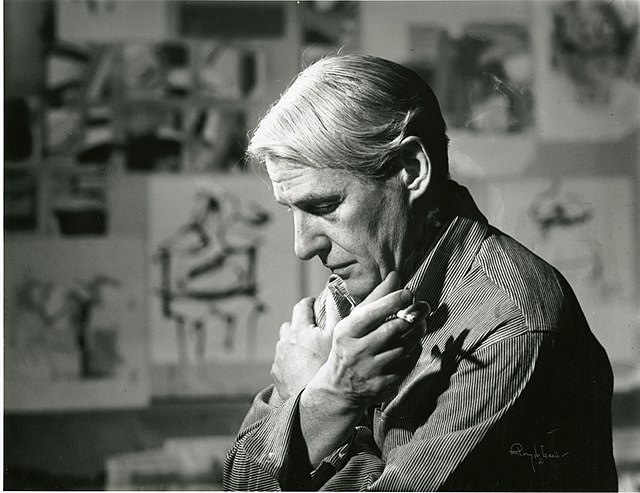
1998: Willem de Kooning, Abstract Expressionist Pioneer, Dies at 92
On March 19, 1997, the art world lost one of its most influential figures when Dutch American artist Willem de Kooning passed away at the age of 92. De Kooning was a pioneering force in the Abstract Expressionist movement and a key proponent of Action painting, a style characterized by spontaneous, gestural brushwork and an emphasis on the physical act of painting.Born in Rotterdam, Netherlands, in 1904, de Kooning immigrated to the United States in 1926, where he became a leading figure in the New York art scene. His most famous and controversial work, the "Woman" series (I-VI), created between 1950 and 1953, featured distorted, aggressive female figures rendered in bold, expressive strokes. These paintings challenged traditional notions of beauty and representation, provoking both admiration and criticism from art critics and the public alike.
Throughout his long career, de Kooning's innovative approach to form, color, and composition had a profound impact on the development of modern art, cementing his status as one of the most significant artists of the 20th century. Wikimedia/Antony di Gesu

2003: U.S. Launches Iraq War, Targeting Saddam Hussein's Regime
On March 19, 2003, U.S. President George W. Bush made the fateful decision to order air strikes on Baghdad, the capital of Iraq, officially launching the Iraq War. The primary justification for the invasion was the belief that Iraqi dictator Saddam Hussein possessed or was actively developing weapons of mass destruction (WMDs), which posed a threat to global security.The Bush administration, supported by a "coalition of the willing," including the United Kingdom and other allies, had been building a case for military intervention in Iraq for months, despite opposition from some nations and skepticism from parts of the international community. As the air strikes commenced, U.S. and coalition forces began a ground invasion, swiftly defeating Iraqi forces and capturing key cities.
However, in the aftermath of the invasion, no evidence of active WMD programs was found, leading to criticism of the war's justification and the intelligence used to support it. The Iraq War would go on to shape the course of Middle Eastern politics and U.S. foreign policy for years to come, with far-reaching consequences that are still being felt today. Wikimedia/U.S. Army Europe
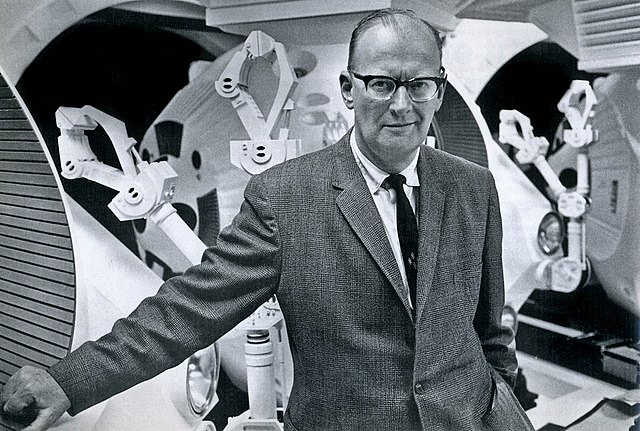
2008: Arthur C. Clarke, Visionary Sci-Fi Author, Dies at 90
On March 19, 2008, the world lost one of the greatest science fiction writers of the 20th century when English author Arthur C. Clarke passed away at the age of 90 in his adopted home of Sri Lanka.Clarke was renowned for his groundbreaking and thought-provoking novels, which explored the future of humanity, technology, and space exploration. His most famous work, "2001: A Space Odyssey," was a collaboration with filmmaker Stanley Kubrick, resulting in a groundbreaking film that redefined the science fiction genre. The novel and film, both released in 1968, tells the story of humanity's encounter with a mysterious alien monolith and the evolution of consciousness, spanning from the dawn of human history to a future space age. Clarke's other notable works include "Childhood's End," "Rendezvous with Rama," and "The Fountains of Paradise," each of which showcased his imaginative vision and scientific expertise.
Throughout his career, Clarke's writing inspired generations of readers and scientists alike, earning him a place among the most influential figures in the history of science fiction. Wikimedia/ITU Pictures

2014: Fred Phelps, Anti-Gay Westboro Baptist Church Founder, Dies at 84
On March 19, 2014, Fred Phelps, the controversial American church leader and founder of the Westboro Baptist Church, passed away at the age of 84. Phelps established the church in Topeka, Kansas, in 1955, but it gained notoriety in the late 1990s for its vehement opposition to homosexuality and the LGBTQ+ rights movement.The church's members, primarily composed of Phelps' extended family, became infamous for their inflammatory picket signs and protests at funerals, public events, and other high-profile locations. Their signs often displayed provocative and offensive slogans targeting LGBTQ+ individuals, as well as other groups and public figures they perceived as supporting homosexuality. Phelps and his church's actions drew widespread condemnation from both religious and secular communities, with many arguing that their messages promoted hate and intolerance.
Despite the controversy surrounding his beliefs and tactics, Phelps remained steadfast in his convictions until his death. The legacy of Fred Phelps and the Westboro Baptist Church serves as a reminder of the ongoing struggle for LGBTQ+ rights and the importance of countering hate speech with messages of love, acceptance, and equality. Wikimedia